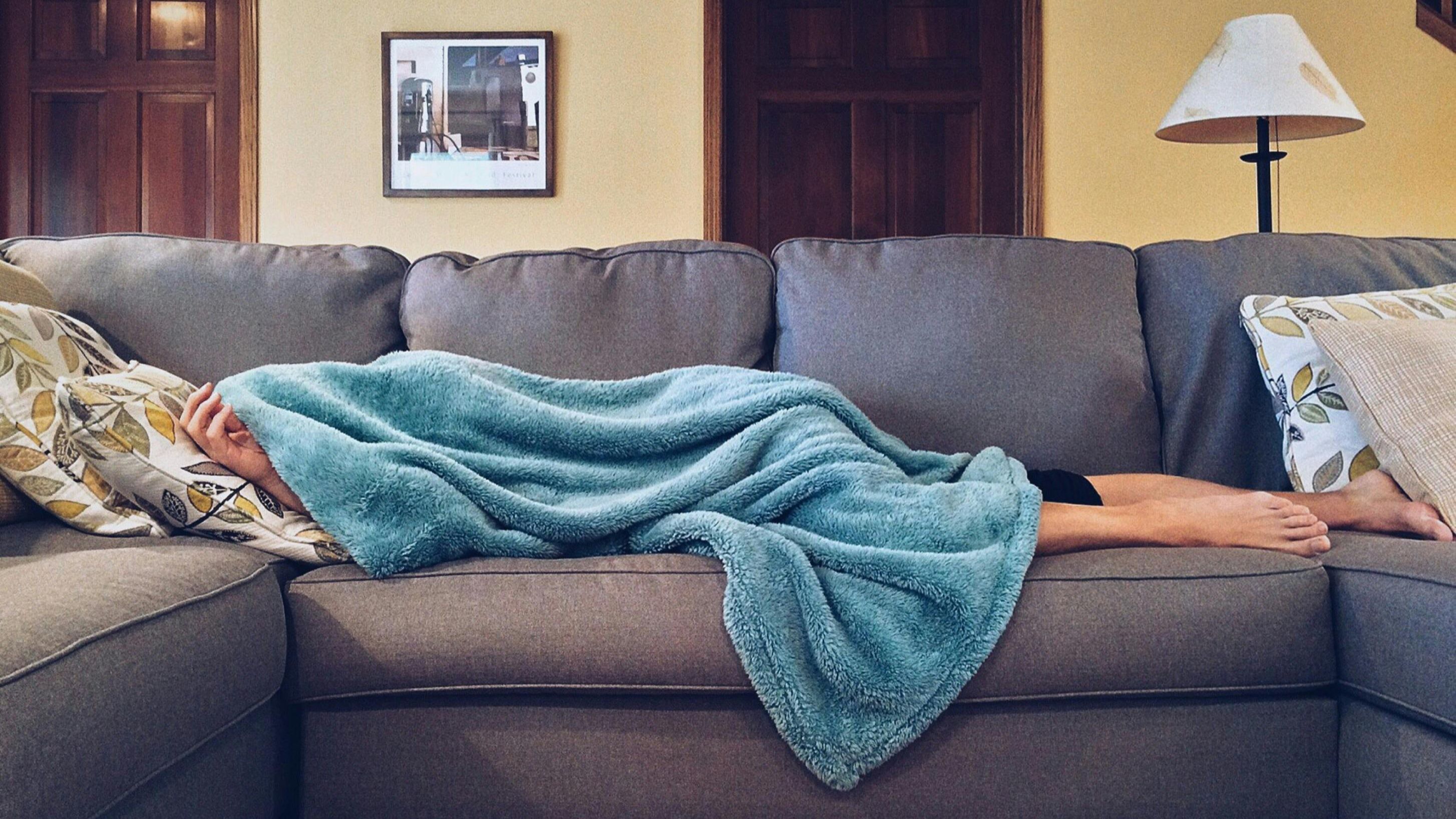Depression and Sleep: Why It’s So Hard to Get Rest (And What Helps)
Jul 13, 2025
Sleep is one of the first things to suffer when depression takes hold—and one of the hardest to restore. Whether it’s lying awake with a mind that won’t quiet, sleeping for long hours and still feeling drained, or waking up far too early without reason, disrupted sleep is more than a frustrating side effect—it’s a defining feature of depression for many. Yet despite how common it is, the relationship between sleep and depression remains deeply misunderstood.
Rest doesn’t come easily to a mind weighed down by sadness, stress, or hopelessness. And the more elusive sleep becomes, the worse depression can feel. This painful loop—where poor sleep worsens mood and low mood sabotages sleep—can quickly spiral, affecting everything from memory and motivation to physical health and emotional stability. But there are reasons for this struggle, and more importantly, there are ways to begin breaking the cycle.
Understanding how depression affects sleep—and what can actually help—can offer clarity, compassion, and a path forward for those who feel stuck between exhaustion and despair. Learn more about anxiety and sleep by clicking here.
Table of Contents
How Depression Disrupts Sleep Patterns
Depression and sleep share a deeply intertwined relationship, and one of the most common—and distressing—symptoms of depression is a disruption in normal sleep patterns. This interference can manifest as insomnia (difficulty falling or staying asleep), hypersomnia (excessive sleeping), or erratic, fragmented rest that leaves a person feeling unrefreshed. But why does depression so reliably disrupt something as fundamental as sleep?
At the biological level, depression is closely linked with changes in brain chemistry that directly affect the body’s ability to regulate sleep. Neurotransmitters like serotonin, dopamine, and norepinephrine play essential roles in mood regulation and the sleep-wake cycle. In depression, these chemicals are often out of balance, which can throw off the body's natural circadian rhythms—the internal clock that cues us when to feel awake and when to feel sleepy. As a result, people with depression might find themselves lying wide awake at night despite exhaustion, or sleeping during the day without ever feeling truly rested.
Beyond the neurochemical disruptions, depression often intensifies mental and emotional activity that keeps the brain in a state of arousal, even when the body needs rest. One common feature of depression is rumination: the repetitive, intrusive focus on distressing thoughts, regrets, or worries. This mental loop can keep individuals mentally alert at night, creating a barrier to both falling and staying asleep. The inability to "shut off the mind" becomes a painful nightly ritual, where sleep becomes less a natural function and more a battle that feels impossible to win.
Physical symptoms of depression also contribute to disturbed sleep. Chronic fatigue, body aches, and changes in appetite and metabolism can make it harder to find physical comfort at night. Additionally, stress hormones such as cortisol are often elevated in individuals with depression, especially during the evening hours when they would normally begin to drop. This hormonal shift increases alertness at exactly the time the body should be preparing for sleep, compounding the difficulty of getting adequate rest.
In sum, depression disrupts sleep through a multifaceted combination of brain chemistry, emotional turmoil, physiological stress, and behavioral patterns. Understanding these mechanisms is essential because they help explain why sleep problems aren't just a frustrating side effect—they're a core component of the depressive experience, requiring specific attention and care in treatment.

The Vicious Cycle: Poor Sleep Worsens Depression
Sleep disturbances are not only a symptom of depression—they’re also a powerful contributor to its persistence and severity. When someone with depression struggles to sleep well, they often find that their mood, energy, and ability to cope with stress deteriorate even further. This creates a vicious cycle: depression disrupts sleep, and in turn, poor sleep intensifies depression, trapping individuals in a loop that can feel impossible to escape.
One of the most damaging effects of sleep deprivation is its impact on emotional regulation. The brain relies on adequate rest to process emotions, consolidate memory, and restore balance in the nervous system. Without quality sleep, the emotional centers of the brain—particularly the amygdala—become hyperactive, while the prefrontal cortex, which helps regulate impulses and decision-making, becomes less effective. This imbalance makes it harder to manage stress, increases emotional sensitivity, and leaves individuals more vulnerable to feelings of hopelessness, irritability, and despair—all core symptoms of depression.
Cognitive function also takes a serious hit when sleep is disrupted. People who are sleep-deprived often report difficulty concentrating, slower thinking, and memory problems. For someone already battling depression, these cognitive impairments can amplify feelings of inadequacy or self-criticism. Everyday tasks become harder, and the ability to work, study, or maintain relationships may deteriorate. This sense of failure or loss of control further deepens depressive thoughts, reinforcing the belief that recovery is out of reach.
Sleep deprivation also weakens the body physically, contributing to fatigue, lowered immune function, and heightened sensitivity to pain. These physical effects add another layer of burden for someone with depression, whose body may already feel heavy, sluggish, or disconnected. The resulting exhaustion makes it harder to engage in activities that might otherwise provide relief or distraction, such as exercise, socializing, or hobbies—further reducing opportunities for positive experiences that might help lift mood.
Perhaps most insidiously, chronic sleep problems can erode hope. When night after night passes without rest, many people begin to dread bedtime, associating it with frustration, loneliness, or anxiety. The bedroom becomes a battleground rather than a sanctuary. Over time, this chronic exhaustion can lead to suicidal thoughts, especially if someone feels they’ve tried everything and nothing helps. Studies have shown a strong correlation between poor sleep and suicidal ideation, even when controlling for other depressive symptoms.
This bidirectional relationship between sleep and depression is well-documented in scientific literature. It underscores the importance of treating sleep problems not just as side effects of depression but as central components of the disorder. Breaking the cycle requires deliberate, targeted interventions that address both mood and sleep—because improving one can often help lift the other.

Common Sleep Issues Linked to Depression
Sleep disturbances take many forms in depression, and they rarely follow a single pattern. While insomnia is often the most recognized sleep issue associated with depression, it’s far from the only one. Some individuals may sleep too much, while others may experience erratic, shallow, or disrupted sleep. Understanding the range of sleep issues can help clarify how depression uniquely affects each person’s rest—and why a one-size-fits-all solution rarely works.
Insomnia is the most prevalent sleep complaint among those with depression. It includes difficulty falling asleep (onset insomnia), staying asleep through the night (maintenance insomnia), or waking up far too early without being able to return to sleep (early morning awakening). These patterns are frequently fueled by a restless mind, racing thoughts, emotional distress, or physical discomfort. For some, insomnia becomes a nightly ordeal marked by frustration, clock-watching, and growing anxiety about not getting enough rest, which in turn makes sleep even more elusive.
Hypersomnia, or excessive sleep, is another common but less-discussed symptom of depression. Rather than being unable to sleep, some individuals sleep for 10 hours or more each night and still feel exhausted during the day. They may struggle to get out of bed, experience heavy limbs, or feel like they’re moving through fog. Hypersomnia is especially common in atypical depression and can be mistaken for laziness or lack of motivation. In reality, it’s often a form of physiological shutdown, where the brain retreats into sleep as a coping mechanism for overwhelming emotional pain or fatigue.
Fragmented sleep—frequent waking throughout the night—is another frequent issue. Even if a person can fall asleep initially, they may awaken several times during the night without clear reason. These awakenings disrupt the normal progression through the sleep cycle, particularly the deep sleep and REM (rapid eye movement) phases that are critical for emotional processing and memory consolidation. Fragmented sleep can leave someone feeling groggy and emotionally raw the next day, even if the total sleep time appears adequate on paper.
Circadian rhythm disruptions are also common in depression. Some individuals experience a delayed sleep phase, where they naturally feel alert late into the night and struggle to wake up in the morning. Others may have an advanced sleep phase, becoming tired unusually early and waking in the pre-dawn hours. Depression-related changes in melatonin production, light exposure, and activity levels can all throw off the body’s internal clock, making it difficult to maintain a consistent and restorative sleep schedule.
Importantly, these sleep issues are not just side effects of depression—they are often intertwined with its core symptoms. Fatigue, low energy, poor concentration, and mood instability are frequently exacerbated by the very sleep disturbances that depression creates. By identifying the specific sleep patterns that accompany a person’s depressive symptoms, mental health professionals can tailor interventions more effectively, addressing both the mental and physiological challenges that hinder recovery.

Hidden Factors That Make Sleep Even Harder
While the link between depression and disrupted sleep is well established, many individuals don’t realize there are additional, often hidden, factors that silently compound the problem. These influences may not seem directly connected to sleep at first glance, but they play a critical role in making restful nights even more elusive—especially for those already struggling with depression.
Anxiety is one of the most common sleep-disrupting co-travelers with depression. While the two conditions are distinct, they frequently occur together and feed into each other in harmful ways. Even low-level, chronic anxiety can manifest at bedtime as restlessness, muscle tension, or racing thoughts. This nighttime anxiety can hijack the body’s natural process of winding down, keeping the nervous system in a heightened state of arousal. Individuals may find themselves replaying the day’s mistakes, worrying about tomorrow, or feeling a general sense of dread that has no clear source. These symptoms not only delay the onset of sleep but can also trigger awakenings throughout the night.
Medication side effects are another overlooked contributor. Some antidepressants, especially selective serotonin reuptake inhibitors (SSRIs), can interfere with sleep architecture by reducing deep sleep or increasing the likelihood of vivid, unsettling dreams. Other psychiatric or physical health medications may cause sedation during the day and restlessness at night, throwing off the natural sleep-wake rhythm. Stimulants, such as those prescribed for attention-deficit/hyperactivity disorder (ADHD), or even common over-the-counter drugs like decongestants and pain relievers containing caffeine, can all interfere with nighttime rest if taken too late.
Technology use—particularly exposure to screens—is a subtle but potent disruptor. The blue light emitted by phones, tablets, and computers can suppress melatonin, the hormone that signals the body it's time for sleep. Many people with depression turn to screens as a source of distraction, comfort, or escape late into the night, unintentionally sabotaging their own ability to fall asleep. Additionally, the content itself—be it emotionally charged news, social media comparisons, or overstimulating games—can increase mental arousal and emotional distress, making relaxation even harder to achieve.
Lifestyle inconsistencies, though often seen as minor, also play a powerful role. Irregular sleep schedules, skipped meals, lack of physical activity, or napping during the day can all confuse the body’s internal clock. Depression often saps the motivation to maintain healthy routines, leading to unpredictable daily patterns that undermine sleep quality. For example, someone who stays in bed all day may struggle to fall asleep at night, not because they aren’t tired, but because their circadian system no longer knows when it's supposed to be active or at rest.
Environmental factors—such as noise, light, or an uncomfortable sleeping space—can be particularly problematic for individuals with heightened sensitivity due to depression. Even subtle irritants like temperature fluctuations, the hum of electronics, or poor air quality can disrupt fragile sleep. For those already struggling to fall asleep, these external triggers become disproportionately impactful, and without clear awareness, they’re often dismissed or overlooked.
Identifying and addressing these hidden factors is a crucial part of restoring healthy sleep. While treating depression itself is key, many of these underlying influences can be modified with targeted lifestyle changes, environmental adjustments, or medication reviews. A holistic view of sleep recognizes that the barriers to rest are rarely confined to one issue—and that healing often begins by looking beyond the obvious.

Evidence-Based Strategies That Can Help
While sleep disturbances can feel inescapable during depression, a range of evidence-based strategies can meaningfully improve both sleep and mood. These approaches work best when tailored to the individual’s unique sleep patterns and underlying causes. Some involve structured therapeutic interventions, while others draw on behavioral and environmental changes that promote long-term stability in sleep and mental health.
Cognitive Behavioral Therapy for Insomnia (CBT-I) is considered the gold standard treatment for sleep problems—especially when they are connected to depression. Unlike sleep medications, which offer temporary relief, CBT-I addresses the root psychological and behavioral factors that sustain poor sleep. This therapy teaches individuals how to identify and challenge unhelpful beliefs about sleep (e.g., “I’ll never be able to sleep without a pill”) and replace them with healthier sleep attitudes. It also involves structured strategies like stimulus control (only using the bed for sleep), sleep restriction (limiting time in bed to rebuild sleep pressure), and relaxation techniques that retrain the body and brain for better rest. Numerous studies have shown that CBT-I can improve sleep quality and reduce depressive symptoms simultaneously, sometimes more effectively than medication alone.
Sleep hygiene practices, though simple in theory, can be profoundly effective when implemented consistently. These include setting a regular sleep and wake time—even on weekends—avoiding caffeine and heavy meals in the evening, minimizing naps, and creating a cool, dark, and quiet bedroom environment. Removing screens at least an hour before bedtime and replacing them with calming pre-sleep rituals (like reading, taking a warm bath, or journaling) can signal the brain that it’s time to wind down. While sleep hygiene alone may not resolve clinical insomnia, it forms the foundation upon which more targeted therapies can work.
Mindfulness and relaxation techniques have gained significant traction as tools for easing the mental hyperarousal that often accompanies depression and sleep issues. Practices like progressive muscle relaxation, guided imagery, and mindful breathing help shift the body from a state of stress to one of rest. Even short sessions of meditation before bed have been shown to decrease sleep onset latency (the time it takes to fall asleep) and reduce nighttime awakenings. Over time, cultivating a mindful relationship with rest—rather than approaching sleep as a battleground—can ease performance anxiety and reduce emotional resistance to bedtime.
Light therapy can be especially helpful for individuals with depression-related circadian rhythm disturbances or seasonal affective disorder (SAD). Exposure to bright light—particularly in the morning—can help regulate the body’s internal clock and improve both energy and mood. Light therapy boxes mimic natural sunlight and are most effective when used consistently at the same time each day. By stabilizing the sleep-wake cycle, light therapy can support deeper and more restorative sleep, especially in those whose depression is marked by oversleeping or late-night wakefulness.
Medication can also play a role, though it is typically recommended in conjunction with behavioral therapies rather than as a standalone solution. Some antidepressants, particularly those with sedating effects, may improve sleep for individuals with severe insomnia. In certain cases, short-term use of sleep aids like melatonin, low-dose trazodone, or doxepin may be appropriate under the guidance of a physician. However, medications can come with side effects and tolerance issues, so they are best viewed as tools to support broader therapeutic efforts rather than permanent fixes.
Ultimately, improving sleep in the context of depression requires a multi-pronged approach that treats the mind, body, and environment as interconnected. There is no magic cure, but small, consistent changes—especially when supported by professional care—can gradually break the cycle of poor sleep and low mood. For many, reclaiming sleep is not just about feeling more rested—it’s a turning point in the journey toward healing and emotional resilience.

More Resources
If you are interested in learning more, click here. For more information on this topic, we recommend the following:
Are you passionate about helping others unlock their potential? Our Board Certified Coach (BCC) training, approved by the Center for Credentialing & Education (CCE), equips you with the skills, tools, and certification needed to thrive as a professional coach. Take the next step toward a rewarding coaching career with our comprehensive program! Click here to learn more!
DISCLAIMER: As an Amazon Associate we earn from qualifying purchases. This post may contain affiliate links that will reward us monetarily or otherwise when you use them to make qualifying purchases. In addition, there may be non-Amazon affiliate links in this post which means we may receive a commission if you purchase something through a link. However, be assured that we only recommend products that we see genuine value in.
The information provided is for educational purposes only and does not constitute clinical advice. Consult with a medical or mental health professional for advice.
Finances do not have to prevent you from getting support.
Come join our support community.
Where would you like us to send the free support group invite and complimentary workbook?
Your Information Will Be Kept Private




